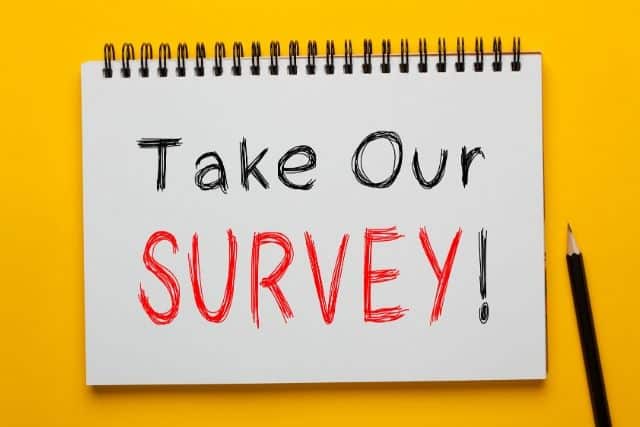What is Survey Method? Types, Advantages, and Disadvantages
Surveys have become relevant to businesses, academia, governments, including private and public organizations across the globe. It’s a method of information gathering, which, when conducted appropriately, provides a rich form of data. That data can help businesses, or whoever conducted the survey, in diverse ways.
Surveys help businesses to make educated and informed decisions. If it involves buyers’ persona, a survey can grant quality information that can help companies to position their brands for success. Let’s look at the meaning, types, advantages, and disadvantages of the survey method. Continue reading!
Survey Method: What’s the Meaning?
The first thing we are going to consider is the primary aim of conducting a survey. Why would a business, student, organization, or individual conduct a survey? Well, the answer is not farfetched. The primary reason or aim of conducting a survey is to acquire information.
Therefore, the “survey method refers to techniques deployed to gather information from an individual or group of people”. The individual conducting the survey prepares a series of questions, which the surveyee needs to answer. It’s the answer provided that is summed up to make up the data for the survey.
After the survey is collected and collated, the next step might be to analyze it. However, this depends on the nature of the survey, as some don’t need analyzing. You can conclude from the response given by the respondent.
There are also different types of survey methods out there. A firm or individual can choose whatever process that’s conducive to conduct their surveys.
The Different Types of Survey Methods Available
The methods of conducting a survey are numerous, and there’s no method that is more effective than the other. One has to stick with the technique tested and effective for the business, niche, audience, or project.
Below are the different types of surveys you need to know.
1. Online Survey
If you are consistently visiting the internet, buying things online, or spending hours on social media, it is most likely that you have done one or more online surveys. Online surveys are among the most common survey methods you will find. Plus, with the advancement in technology and the population of mobile phone users or those who have access to the internet increasing, the popularity of online surveys will only increase. They are considered a breeze to design and deploy to surveyees via email or other means. And compared to other forms of surveys, online surveys are more cost-effective.
2. Paper Survey
Paper survey is almost like the direct opposite of an online survey. The advantage of this survey method is that it can get to areas where there’s weak or no internet connection. The survey paper can be written with a pen or typed on a computer system and printed before being distributed. This type of survey is also popularly used in the field of research.
3. Face to Face
This survey method can also be termed a “one-on-one interview.” It involves talking with the interviewee or respondent directly. Face to face interviews can be time-consuming and demanding. But if you are creative enough with your questions, you can end up acquiring a great deal of information from the respondent for your project.
4. Telephone Survey
The name alone tells with this survey method implies. It involves conducting an interview or asking the respondents questions over the phone. This survey method is time-consuming and financially demanding. Also, most people aren’t comfortable talking over the phone for long hours, so that might be another bottleneck. Most respondents might also not pick up your call, and that might hamper your project or whatever you plan to do with the survey.
Advantages and Disadvantages of Survey Method
So, let’s look at the bad and the good sides of survey methods. With this explanation, you will understand the term better. Why are surveys relevant and what are the drawbacks? Also, note that these advantages and disadvantages cover all survey methods.
Advantage of Survey Method
- Surveys, particularly online surveys, are quite less expensive, talking about the cost for each participant. It’s the phone interview that tends to be more expensive. With online surveys, the response might run into hundreds of thousands.
- There’s a high possibility that you might receive candid responses from your surveyees. That’s because of the anonymity attached to surveys, anyway. So, if you want to get an unbiased reaction from respondents, the survey is a much better option than other research methodologies.
- The data collated from an online survey tends to be more reliable, which is the aim of every survey.
- Surveys are quite a breeze to administer.
- They can prove helpful for academic, health, or business purpose. For business, information gathered from research can help companies to plan their market strategy, sales promotion, advertising media, and market variables.
Disadvantages of Survey Method
- The response rate, when sending out emails, are sometimes very low.
- Your audience also matters a great deal when it comes to the outcome of a survey. If you are dealing with a low literacy audience, online surveys might not be appropriate. These respondents aren’t used to or regular on the internet. So, you might not achieve your goal of the survey.
- Surveys, particularly the face-to-face survey method, can be quite expensive. In addition to being financially draining, face-to-face surveys also consume a lot of time. You might have made up your mind to stay for 30 minutes and end up staying longer.
- Rigidity is another disadvantage and a significant issue for surveys. When crafting the questions, you need to take into consideration every single question you are interested in asking. Failure to do so will cause you to miss out on specific information. That’s because respondents may not provide answers for questions not captured in the survey sheet or form.
- The answers given by the respondent might produce unclear data. That’s because the respondents might interpret or respond to the questions differently. Whether online or face-to-face surveys, it can still happen.






